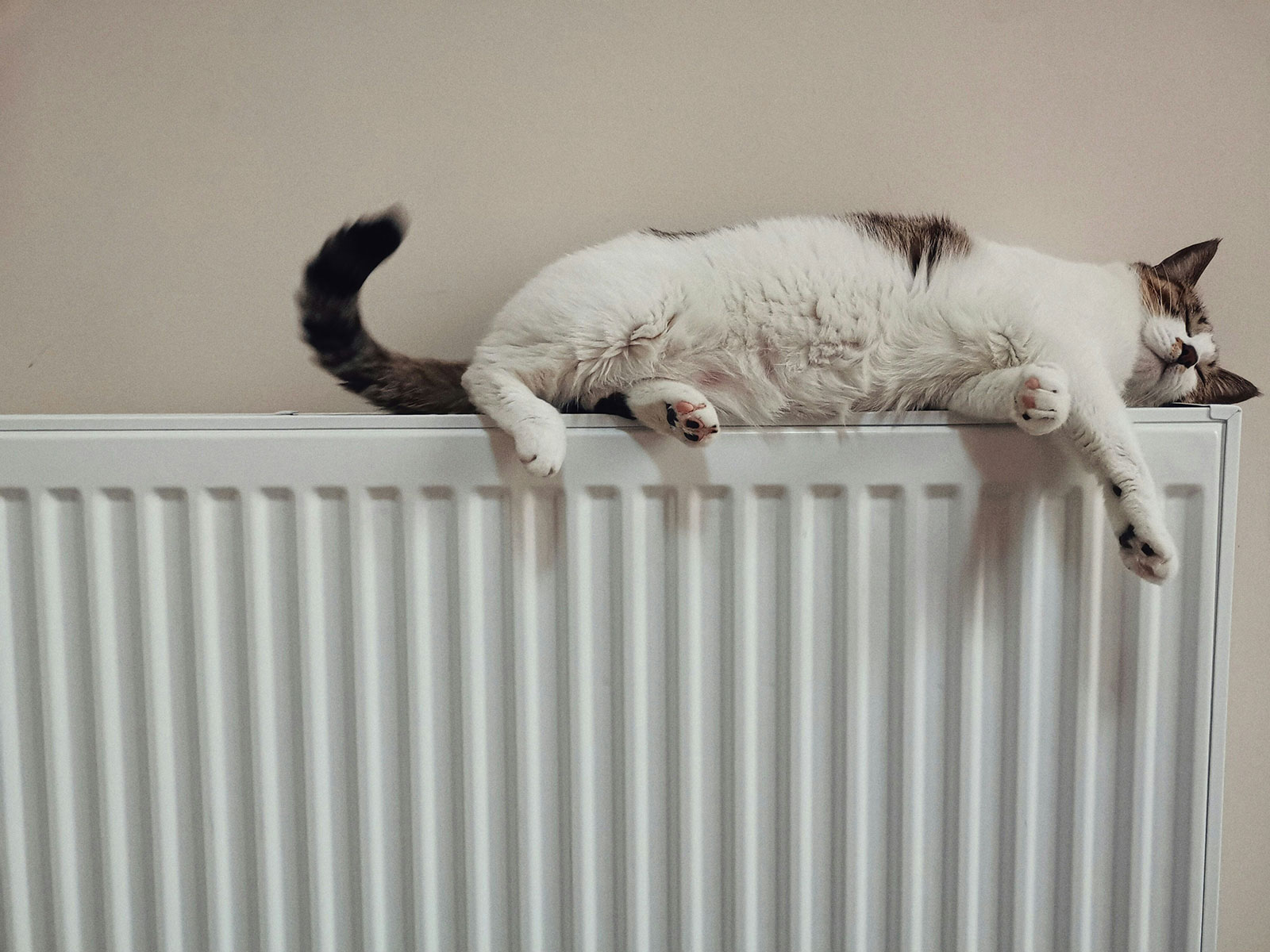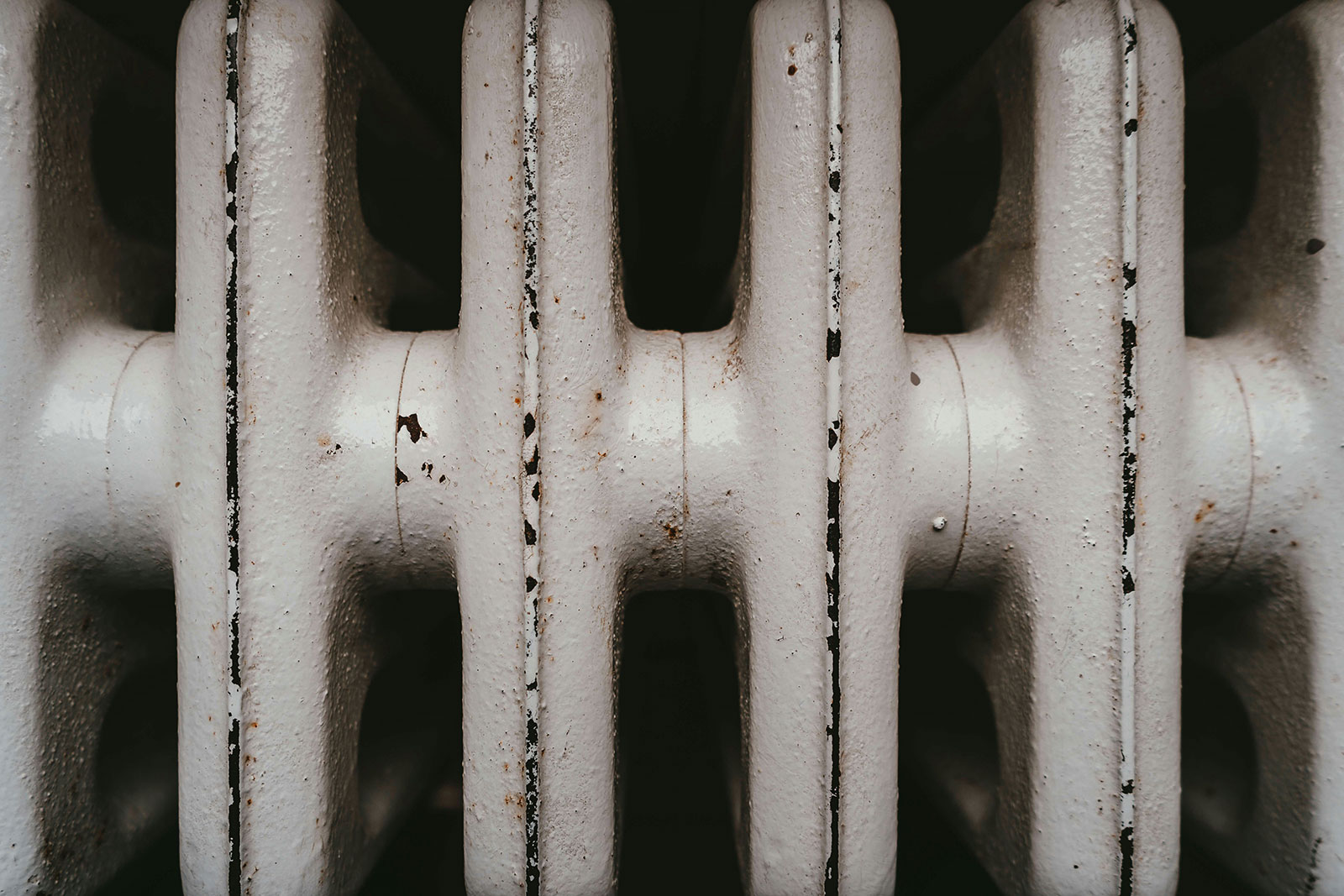We understand that during the summer, thinking about your heating system may not be the first thing on your mind. But when winter and the colder months roll around, you won’t regret a little summer radiator maintenance to make sure your heaters are in tip-top condition and ready for use.
Even electric radiators require some upkeep to ensure they are working to the best of their ability and remain energy efficient to have a long and fruitful life, keeping you warm on demand!
We’ve created our top tips for what to do with your radiators over the summer as part of your prep for winterproofing the home.
Top tips for maintaining your radiators during the summer
1. Switch your heating on at least once a month
Since you’re not using them, it might make sense to leave your heating devices switched off to save energy. But putting the heating on just once a month during the summer for about 15 minutes can prevent a number of issues, like reducing radiator valves from seizing.
While switching the heating on in warmer seasons will be the last thing on your mind, a quick blast of heat will keep the water circulating so the components and pumps stay in good working condition.
Better still, if there are any underlying issues like a leak or rusting, you can spot these in advance before they get worse and lead to expensive repairs. It’s good to check these areas from cropping up and before you reach the colder months, as this is also typically when plumbers are a lot busier!
For many households, knowing when to turn central heating off for summer is important, but the real trick is not switching it off entirely for months without giving it a short monthly run.
Likewise, if your home has electric radiators installed, keep the power on and don’t be tempted to switch your radiators (or electric boiler) off at the mains.
If by chance you have switched your electric heating off, as the receiver on the radiator is powered by the mains socket, when it loses power, the receiver can lose connection to the thermostat.
To avoid this, all you need to do is turn the dial on your thermostat all the way anti-clockwise (or left) to the standby symbol. The standby symbol looks like a circle with a line directly through the top. This will stop the radiator from doing anything until you turn it back around to your normal heating setting.
2. Open Up Your TRVs to the Max
If closed for too long, Thermostatic Radiator Valves (TRVs) can become stuck, causing the pin mechanism to seize. So when you’re popping the heating on for a quick 15 minutes during the summer, ramp up the valve so it’s fully open and on the highest setting which will let the water run through fully.
Again, it’s a quick and simple ‘to do’ ahead of the autumn/winter which you’ll thank yourself for when all your radiators are working properly during a cold snap.
3. Bleed your radiators and check for leaks
If you have a conventional gas heating system, it’s worth bleeding your radiators. While they’re not being used as much, air can become trapped, reducing their efficiency as cold spots can form and prevent warm air from circulating.
Using a radiator key, release the trapped air slowly, allowing water to fully flow inside and fill the whole system. It doesn’t take long to bleed a radiator and is such a ‘quick fix’, helping you to improve the energy efficiency of your home long-term.
4. Change thermostat batteries before the cold weather returns
If you’re using wireless electric thermostats, make sure to replace the batteries every 12 months. When they’re being used less during the summer and when your radiators aren’t in use, it’s the perfect time to replace them!
5. Give your your radiators a clean
Using a duster or vacuum cleaner, it’s good to give your radiators a wipe down to remove and prevent any buildup of dust or debris. Make sure to avoid using any chemicals or polish as this can damage your heating significantly.
Don’t worry, a build up of dust is only natural in any (especially busy!) home and it’s typical for it to build up when radiators aren’t in use over the summer. Removing dust from the surface can improve your heating efficiency, allowing the air to flow freely as it’s no longer insulated by debris.
Wipe over the top, bottom and front of your radiators with a soft, preferably microfiber duster. If dust has accumulated over time, when you switch the heaters back on in winter, you may notice a slight smell coming from your radiator, however a regular clean will prevent this build up.
6. Inspect for risk of corrosion
When you’re giving your radiators a wipe, also look out for signs of corrosion. Inspect the pipe joints, valves, paintwork such as bubbling or flaking and look out for rust. This could indicate internal issues which could cause a leak. It could be time to get a new radiator but if you’re in doubt it’s best to call in a specialist.
7. Book a boiler service
Not only are plumbers less busy in the summer months, but regular maintenance of your boiler improves your energy efficiency all year round. Regular boiler services improve the life of the system too, as the technician cleans all the parts and detects the risk of carbon monoxide leaks.
There’s nothing worse than your boiler breaking down when it’s freezing! By scheduling a service in advance of the colder months, you’re preventing any issues from occurring when it’s the last thing you need on a cold day.
8. Replace or upgrade your radiators
If your existing radiators simply aren’t up to standard anymore, it could be time to upgrade your existing heating system and go electric.
Upgrading your home in the summer months to an electric system means you have time (typically a couple of days) for the installation to complete before it gets cold, and so you can test out the system. It’s typically less disruptive and a great time to book an installer to take a look.
9. Maintain underfloor heating too
Should you turn off underfloor heating in the summer? Much like radiators, switching it off completely for months can cause parts to seize or perform less efficiently when you need them. Instead of fully turning off your underfloor heating in the summer, consider lowering the temperature or running it briefly once a month to keep the system healthy.
Improve energy efficiency by maintaining your radiators in the summer
With these tips you can maintain your radiators throughout the summer for complete peace of mind, knowing you’ll be toasty and warm on that first unexpected cold day in the autumn/winter months.
If you’ve been asking yourself whether you should turn the heating off in summer, or even when to turn the central heating off for summer, the answer is less about a set date and more about maintaining regular light use to protect your system.
If you’re ready to make the switch and go fully electric, take a look at our electric heating products for renewable energy solutions.
- Energy Prices Change. Heat Loss Doesn’t. - February 24, 2026
- The Warm Homes Plan Explained: What it Means for UK Homes - February 20, 2026
- Energy Bills Will Fall in 2026: What’s Changing and Why It Matters - February 3, 2026


